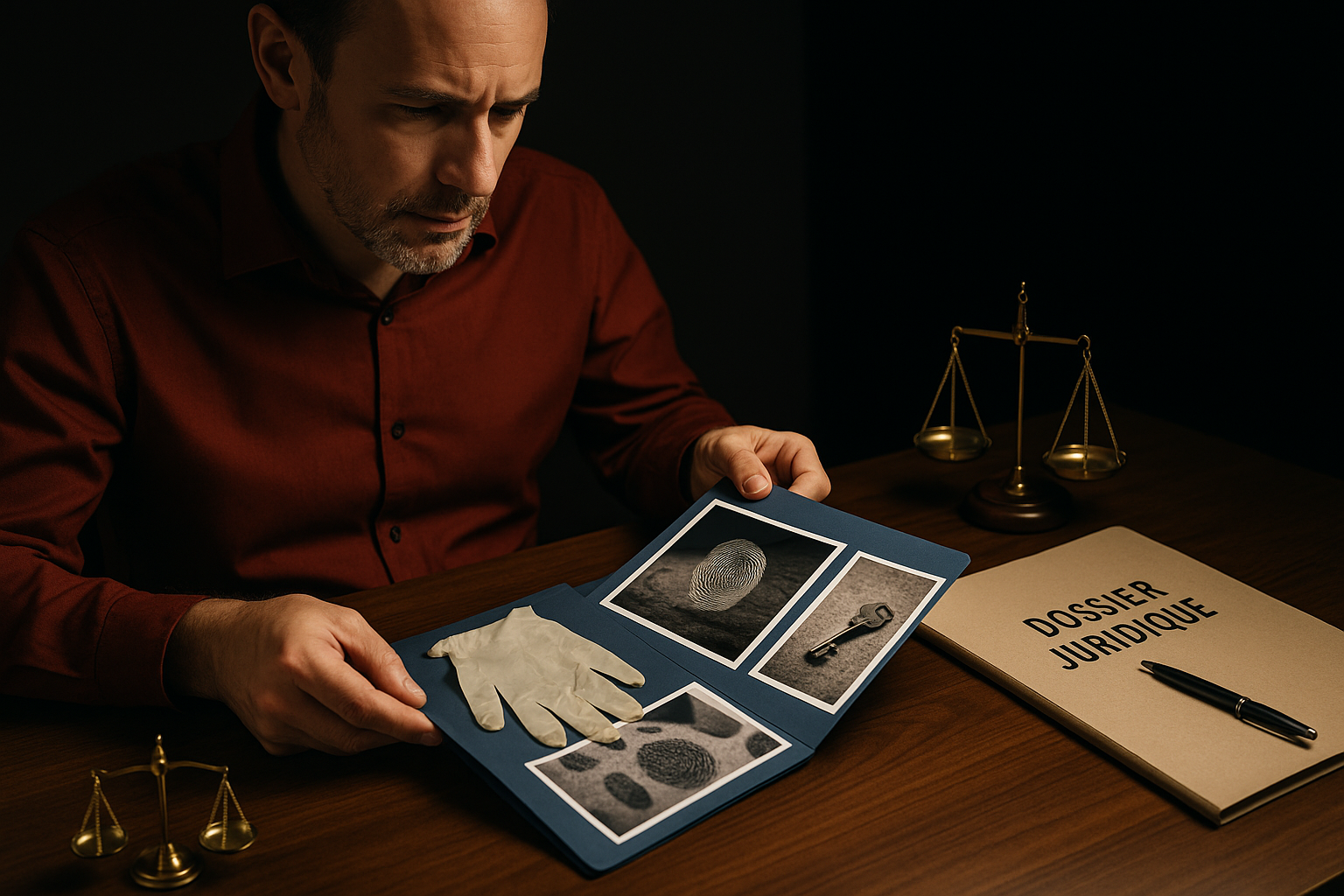Published on October 31, 2025
Actus reus is a central concept in Canadian criminal law. It refers to the act, omission, or material result that constitutes the offense. Unlike mens rea, it does not concern intent but focuses solely on the action or behavior. This element is essential to proving an accused’s guilt. Our firm assists anyone facing a criminal charge involving the demonstration of actus reus, ensuring a fair and rigorous defense.

Learn more
In criminal law, an individual’s guilt can only be established if two elements are proven: the actus reus (the guilty act) and the mens rea (the guilty mind).
These two components form the foundation of every criminal offense. The actus reus, more specifically, constitutes the material element of the crime—it is the act or behavior prohibited by law.
Thus, without proof of a voluntary and wrongful actus reus, no criminal liability can be established. This article outlines the fundamental principles governing this concept and its essential role in determining guilt.
What is actus reus?
The actus reus, also known as the guilty act, refers to the outward behavior of a person as defined and punished by criminal law. It represents the concrete act or the observable result of prohibited conduct. In other words, what a person does or fails to do.
This element must always be manifested in reality. Its components are determined according to the wording of the law creating the offense.
The voluntary nature of the act
For an act to constitute actus reus, it must be performed voluntarily. This voluntary nature is analyzed from two perspectives:
1. Physical aspect
The person must have control over their body at the time of the act. For example, an act committed during an involuntary spasm or a loss of consciousness does not constitute a voluntary act.
2. Moral or normative aspect
Voluntariness also implies a conscious choice to act and to accept the consequences. However, certain situations, such as duress or necessity, can negate this voluntary element. In such cases, the accused admits to having committed a wrongful act but had no real choice. For example, acting under threat to avoid imminent danger.
The components of actus reus
Actus reus may take different forms depending on the nature of the offense :
1. A positive act
This is the most obvious form: performing a prohibited action.
Examples : hitting someone, stealing an object, or damaging property.
2. A state or situation
Some offenses are based on being in a prohibited situation, even without a specific act.
Examples : having care or control of a vehicle while impaired, possessing a prohibited substance, or being nude in a public place.
3. An omission
An omission may also constitute actus reus, but only when the law imposes a duty to act. For instance, when a person fails to :
- Render assistance to someone in danger;
- Care for a dependent person;
Certain crimes require specific circumstances to be proven, such as the victim’s age, lack of consent, time, or location.
5. A consequence or result
In many offenses, actus reus also includes the consequence of the act, such as injury, death, or property damage.
Example : dangerous driving causing death requires proof of the death and the causal link between the death and the wrongful conduct.
The causal link
When an offense involves a consequence, the prosecution must establish a causal link between the accused’s conduct and the prohibited result. This link must show that the illegal act contributed in more than a minimal way to the outcome. In other words, that the accused’s participation was not negligible or insignificant.
In first-degree murder cases, the law imposes a higher standard. The accused’s conduct must have been a substantial contribution to the victim’s death, meaning a primary cause of it.
Conclusion
Actus reus forms the material foundation of every criminal offense. It demonstrates that a prohibited act, a wrongful omission, or an unlawful consequence actually occurred.
Without proof of a voluntary act or a sufficient causal link, no criminal conviction can be pronounced. Therefore, understanding and properly analyzing actus reus is essential to any effective defense.
For any questions regarding a criminal charge involving proof of actus reus, our firm can assist you. We provide personalized support at every stage of the judicial process and ensure the protection of your fundamental rights.